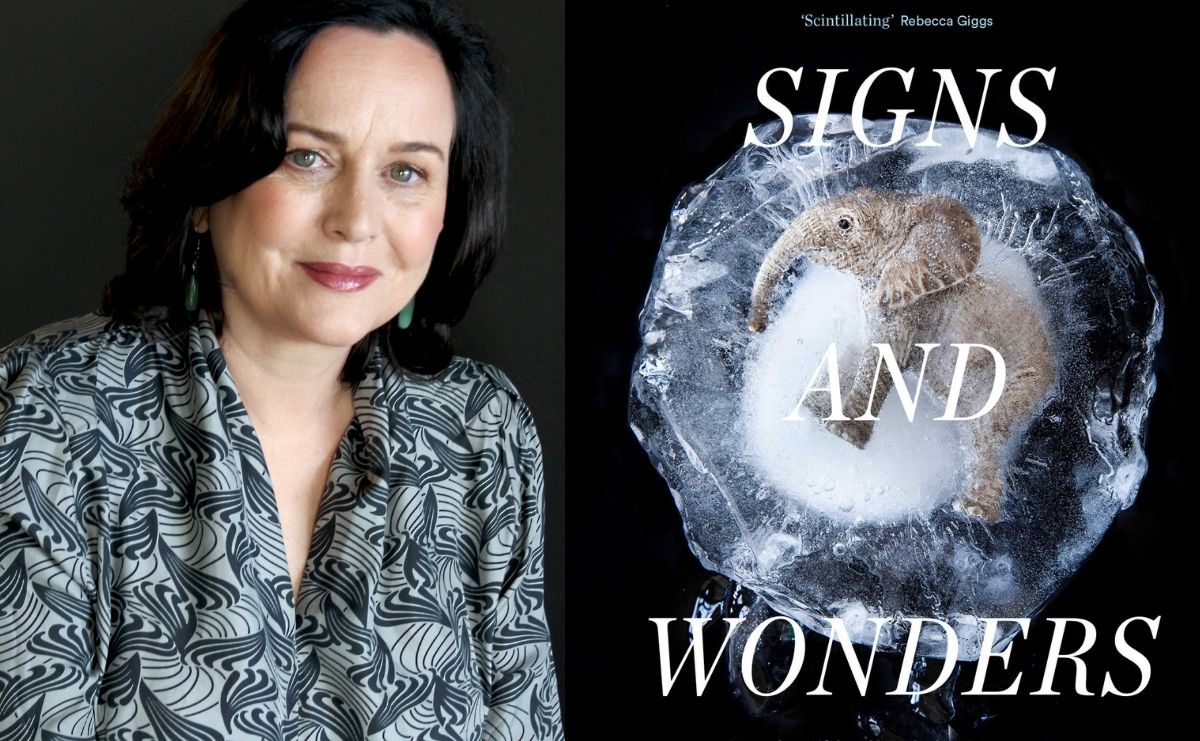In Signs and Wonders: Dispatches from a Time of Beauty and Loss, Delia Falconer searches for ways to describe how modern, developed societies are increasingly enthralled by nature at the same time as we’re annihilating it. One of the most beautiful offerings is ‘skying’, English artist Jon Constable’s term for the hours he spends lying on the earth, watching the clouds he will later paint as they pass overhead. A lover of language, Falconer borrows the term to describe her long walks and amateur photography during Sydney’s first COVID lockdown.
Indeed, the whole collection, with its diary entries, images, vignettes and multi-part essays, can be seen as a process of ‘skying’. With her sharp, empathetic eye, Falconer creates a moment of stillness in which to observe the steady, inexorable movement of the world around us: a movement towards ecological disaster caused by human-created climate change.
The fragments that Falconer captures include bees shrieking as their hives burn in bushfires and glaciers that moan as they melt; an off-leash dog attempting to initiate play with a fur seal; and luminous jellyfish being wrung out in an attempt to bottle their glow. Our desire to interact with what we are losing is, in many cases, only accelerating the decline, as well as the pitch of our anxieties.
Everything is breaking down, including, as Falconer points out, narrative.
The collection’s subtitle identifies it as a series of ‘dispatches’, bringing to mind not only official reports, but also a necessarily patchy mode of presentation. This is the reason Falconer collects new words and experiments with form: It’s too late for a homogenous account of what is happening.
Like ‘skying’, other borrowed terms inform the collection on a deeper level. The reverent but melancholy tone and unexpected approaches reflect human feelings of ‘solastalgia’ (Glenn Albrecht) or ‘endsickness’ (Elizabeth Rush), physical sensations experienced in response to familiar environments changing around us.
A more bittersweet concept is the Yolngu people’s bir’yun, or ‘shimmering’, which is the interconnections and agency of the natural world without human viewpoint as its foundation. In a way, Signs and Wonders is itself an act of ‘shimmering’, with all its accompanying connotations of light, brilliance, and clarity. The only problem is, as Falconer notes, human impact is now almost impossible to extricate from even the smallest and most remote ecosystems.
Read: Theatre review: Forthcoming, QPAC
There are points when the relationship between topics feels fragile, or takes a while to become apparent, usually when the focus begins with aspects of culture and the arts. But this is how Falconer sees the world: as a reader and a writer. Her skills in these areas let her explore, for example, the use of light in the TV show CSI: Las Vegas and shifting approaches to fictional paragraphs in precise and illuminating ways before connecting back to the work’s central concern: that this is ‘the charismatic phase of environmental collapse.’
As the world hurtles towards the inevitable, Falconer provides space to reflect on where we have been and where we are – tragically – headed. No solutions or mitigation strategies are presented, but that’s not what this collection is about. Rather, it is a simultaneous act of ‘skying’ and ‘shimmering’.
Falconer herself confesses that she isn’t sure if Signs and Wonders is ‘a record or a requiem’. Perhaps, in the end, it will be both.
Signs and Wonders: Dispatches from a time of beauty and loss
By Delia Falconer
Publisher: Scribner
ISBN: 9781760857820
Format: Paperback
Pages: 290pp
Release date: 29 September 2021
RRP: $32.99





